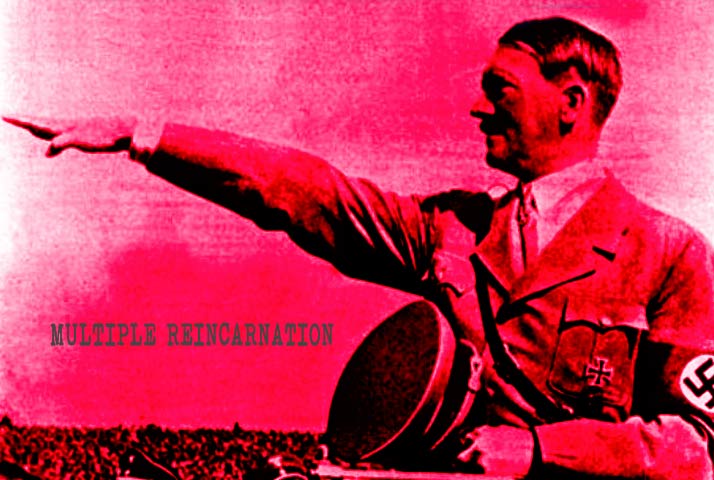The Predictable Pathway And Its Difficulties

As one who adores sciences more than anything, I never knew my life needs a new political uptake. But now I am getting one. It is a battle I chose to have and it is a storehouse for the ultimate safeguarding of the Eritrean diversities. May be it is an impulsive enthusiasm, but now it became a focal point in my struggle, rolling it out to all political spectrum. For longer than I care to remember, the following items have occupied the top spot in my political hub (a) unity (b) equitable justice. It is a noble mission and a hope for the future in a multi-cultural democratic context, and indeed the path of uncharted vast opportunities. I can almost guarantee these two items won’t be scratched off from the priority of my list nor do I flinch to advocate for them until we reach our destination to realize their permanence and percolate to various levels of our society. All other political items remain constant within the loop of these fundamental values.
It is obvious that one could ask what kind of governance could serve to remove the obnoxious practice of marginalization in our nation? What form of government or statecraft in its modern term holds the unity of our diversities with its grain of principle for equitable justice? The answer to these questions is: our approach should be marked by dialectics as a method of discussion that involves profound insights and cognitive optimism into the nature of our reality. As I already mentioned in my previous writings, to bring the best rational and righteous political order, which leads to harmonious unity of our society, “decentralized unitary governance” which I call “a storehouse of ultimate unity keeper and a scheme to seal our political thrust for unity.” As a result, I will never leave it or forsake it.
If I try to make politics more of science than it should be, I could bring “life science” as a vehicle that carries my argument to find tractions in the thinking mode of our people. In medicinal chemistry, the new drugs which are bio-similar are intended to replicate the therapeutic effects of medicine – similar to their counterpart brand, in terms of “safety” and “effectiveness.” In politics also there are similar theoretical frameworks of governance, conditioned by specificity, but intended to replicate “unity” and “equitable justice.” At this point all the forces within ENCDC and EPDP are advocating for decentralized unitary governance at least in theory. The argument will be then, what kind of framework of decentralization is applicable to our diversity? Here we should focus on the replicable nature of the framework of our reality.
Scholars, especially in the field of social sciences, law, politics and anthropology, could tap into the theoretical and constitutional frameworks based on research designs and interpretations, within the context of democracy and justice, to address the mistrust and social grievances of our diversity. I have written few articles to reflect my take on the subject. But let me go to the issue that compelled me to write this essay: the difficulties of the predictable pathway and how to overcome them. I will try to extrapolate through the value of justice. Hence, to make my point, I will visit the issue of loyalty to justice and the argumentative delinquency for justice.
Character of loyalty to justice
Politics does not go by ruffles, flourishes and celebration of the obvious. It is about courage and loyalty to justice. It is about character—a rare commodity in the business of politics. Justice should be reflected in all that we think, in all that we say, and in all that we do. Nations will be stronger and secured, citizens will be harmonious and tolerant only as a consequence of the measure we exercise on loyalty to justice. Justice is not a charade or absurd pretence. It is a virtue that lives within the highest standard of behavior and distinctive qualities built into an individual or society. Justice is a real deal in raw politics and it benefits the ignorant as well as the villains. Once it becomes a lesson learned, we would never forsake it.
When common sense is not common, which reflected in our current debate, I saw a strike with a “political axe” to the process of our congress from those who advocate for justice. It baffles your mind. But, is it an exhibit of loyalty or hypocrisy to justice? Is it another way of marginalization or an act of franchising? Ah! Reality gives you pain, and one wouldn’t stop from rolling his eyes or utter “ugh” for that matter, as if he is pinched by a needle suddenly. They forget all the ups and downs we have gone to bring into a common platform for all the presumed stakeholders in the congress, including a justifiable electoral process by the way. All the attempts were how to be inclusive and formulate an equation that holds the equilibrium like a “homeostasis” in a biologic-blood. Justice by its nature is three dimensional—distributive, interactional, and procedural. I believe that is done within the standard of Eritrean reality. In fact Justice was given equally to equals and unequals in proportion to their contribution to the common good. Not perfect but one step forward. There is no perfect calculation in politics.
When all are set and done, there is a surprising inconsistency in this “dual duel issue of justice by subtraction” argued by our counterpart. We can’t let marginalization in the making against anyone in the current struggle. Now, instead of launching the real battle against the common enemy, they are trying to take us into a pity personal battle who will be in the congress and who will not be, just to upset the equilibrium. Justice is needed not only for our friends, it is also for our enemies. If we are crying for justice we have to exercise justice within ourselves also. We don’t need this political hypocrisy from the other side of the political spectrum. We are tired. Enough is enough. We were not in the congress and now in the council to remove our haters and embrace our lovers. For heaven sake, we can’t stand justice only when it suits us.
It is ironic that they are caterwauling in chorus, to insinuate conspiracy by the leadership—doing something with the Ethiopian government to mess up the election. When for fact they know that the process wasn’t. Not at all! But sadly enough, we are watching in the daylight lobbying and maneuvering to the leadership to remove their haters. The leadership must show now strong leadership and must not vacillate in any circumstances—a discourse of statesmanship holding a scale and sword in the foreground. There is no unity by subtraction and no justice by hypocrisy. We can’t stand like a whirling dervish on this issue. We need to exercise retail politics and make the necessary outreach to our people and explain the basis of our decision—and yes give them the spark to ignite the potential energy in them.
Argumentative Delinquencies
Policy is dictated by reality. It is laid down by factoring-in all the determinant variables around that particular circumstance, in an effort to help us and change the momentum to our strategy (the strategy of our common cause). Keep in mind that Social science is subjective and it does not follow the methodology of hard sciences (chemistry, physics, biology, and their branches). In this case, our political policy then should factor in, the entire social forces who participate in the process. From the get go, the goal of the congress was to bring all the forces to chart a “common strategy and a road map” to fight in unison against the tyranny. In doing so the forces who participated in the process should be sorted-in (without sorting-out any) in the strategy we came out from the congress. Now, any argument against the goal we already set forth will be characterized as “demagogue argumentative delinquency” or “diversionary argumentation.”
Myself I was satisfied by the outcome of the congress on two things (a) on the political supra-structure (b) on the distribution of the seats to the stakeholders. The political supra-structure was envisioned to reflect decentralized governance by which it devolves the power of representation to the stakeholders (the seven regions and political organizations). This gave us the microcosm of democratic exercise in a decentralized administration—a new introduction to supersede the old practice of centralized administration. The distribution of the seats was proportional relatively to the stakeholders who participate in the congress. As to how much is understood the concept by the rank and files, is still a big question. Why? Because there are still lobbying from inside and outside (a) to reverse the new administrational structure to the old practice of centralization of power by appointments (b) to expel some of the stakeholders who contribute to the process with money, energy, and personal sacrifice, all despite a clear instruction that is given by the executive. This is an absolute defiance to common sense and hints an act of insipidity any way.
This short essay is specifically directed to those who wrote about justice and tried to be proponent of justice but failed to be loyal to the spirit and words of justice. Most things are easier said than done. Now it is clear to me that justice is only when it serves them. This is my message to them: Justice does not play politics but fairness. Justice does not dictate by majority but by its equanimity. Justice does not take side with the strong only but also with the weak. Justice does not have hidden agenda but open with its value to serve. Justice does not segregate but it accommodate. These are the words of justice written on the wall, either you will live with it or abandon it and give it to another’s control or mercy.



Awate Forum